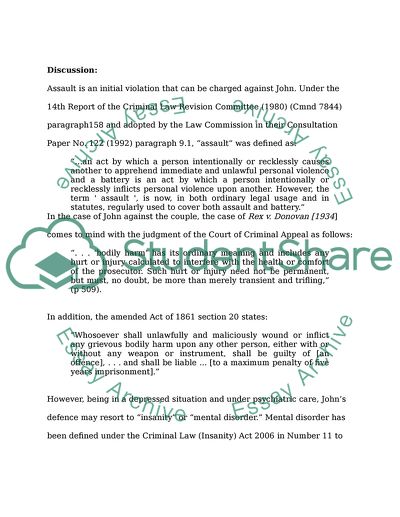Cite this document
(If a Person Is Guilty of Several Crimes, What Punishment Will He Incur Case Study - 6, n.d.)
If a Person Is Guilty of Several Crimes, What Punishment Will He Incur Case Study - 6. Retrieved from https://studentshare.org/law/1747709-criminal-law
If a Person Is Guilty of Several Crimes, What Punishment Will He Incur Case Study - 6. Retrieved from https://studentshare.org/law/1747709-criminal-law
(If a Person Is Guilty of Several Crimes, What Punishment Will He Incur Case Study - 6)
If a Person Is Guilty of Several Crimes, What Punishment Will He Incur Case Study - 6. https://studentshare.org/law/1747709-criminal-law.
If a Person Is Guilty of Several Crimes, What Punishment Will He Incur Case Study - 6. https://studentshare.org/law/1747709-criminal-law.
“If a Person Is Guilty of Several Crimes, What Punishment Will He Incur Case Study - 6”, n.d. https://studentshare.org/law/1747709-criminal-law.


